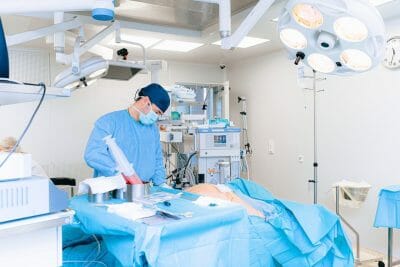Are you considering a cosmetic procedure? Whether you’re looking to have Botox injections or get a facelift, it’s important to do your research and understand the risks involved. It’s also important to consult with a board-certified plastic surgeon who can help you make the best decision for your needs. Here are six medical tips to help you make an informed decision about undergoing a cosmetic procedure.
1. Consider Your Motivation
It’s important to be clear about your motivation for wanting a cosmetic procedure. Are you looking to improve your appearance or are you trying to correct a medical condition? If you’re looking to improve your appearance, it’s important to have realistic expectations. Having a breast lift procedure done can make you feel better about your body. It’s also important to understand that results may vary and that you may need more than one procedure to achieve your desired look. Additionally, you should be aware that cosmetic procedures are not covered by health insurance and can be expensive. This should be taken into account before undergoing a cosmetic procedure.
2. Understand the Risks
As with any medical procedure, there are risks involved with cosmetic surgery. These risks can include infection, excessive bleeding, and nerve damage. It’s important to discuss these risks with your surgeon prior to having any procedure done. Additionally, you should make sure that you are healthy enough to undergo surgery. This means that you should not have any active infections or other medical conditions that could complicate the surgery. While the risks of complications are low, it’s important to be aware of them before making the decision to have surgery. If you have any concerns, be sure to discuss them with your surgeon.
3. Choose a Board-Certified Surgeon
When choosing a surgeon, it’s important to make sure that they are board-certified by the American Board of Plastic Surgery. This certification ensures that the surgeon has completed a residency in plastic surgery and has passed a rigorous examination.
If you are particularly considering non-surgical procedures, like non-surgical rhinoplasty, it’s worth exploring specialists such as Robert Kotler MD, who offers permanent non-surgical solutions. Additionally, board-certified surgeons must adhere to strict ethical standards. This means that you can be confident that your surgeon will provide you with the best possible care. Also, be sure to ask your surgeon about their experience and training. You should also ask to see before and after photos of their previous patients.”
4. Ask About Recovery Time
Recovery time after a cosmetic procedure will vary depending on the type of procedure you have done. It’s important to discuss this with your surgeon prior to having any procedures done. For example, if you are considering a facelift, you should understand that recovery time may be several weeks. During this time, you may experience some swelling and bruising. Additionally, you may need to take some time off from work or other activities. Be sure to discuss your recovery time with your surgeon so that you can make the necessary arrangements.
5. Make Sure You’re Ready for the Results
Before undergoing any cosmetic procedure, it’s important to be sure that you’re mentally and emotionally prepared for the results. For example, if you are considering a nose job, you should be prepared for the fact that your nose may look different after surgery. Additionally, it’s important to understand that results may not be immediately noticeable. If you’re not ready to deal with the possibility of change, you may want to reconsider having any cosmetic procedures done. This is an important decision that should not be made lightly.
6. Follow Your Surgeon’s Instructions
After your cosmetic procedure, it’s important to follow your surgeon’s instructions for care. This includes keeping any follow-up appointments and avoiding any strenuous activity or exposure to sunlight. Additionally, you should avoid wearing makeup or using lotions or creams on your face for at least a week after surgery. By following your surgeon’s instructions, you can help ensure that you heal properly and achieve the best possible results. It’s also important to understand that it may take several months for your results to fully develop. While you may be eager to see the final results, it’s important to be patient and give your body time to heal.
If you’re considering a cosmetic procedure, it’s important to understand the risks and benefits involved. Be sure to consult with a board-certified plastic surgeon to get the best possible care. Additionally, make sure you’re mentally and emotionally prepared for the results of your procedure. Follow your surgeon’s instructions for care after your procedure to help ensure proper healing and optimal results. By knowing what to expect and taking the necessary precautions, you can help ensure that you have a positive experience with cosmetic surgery.
